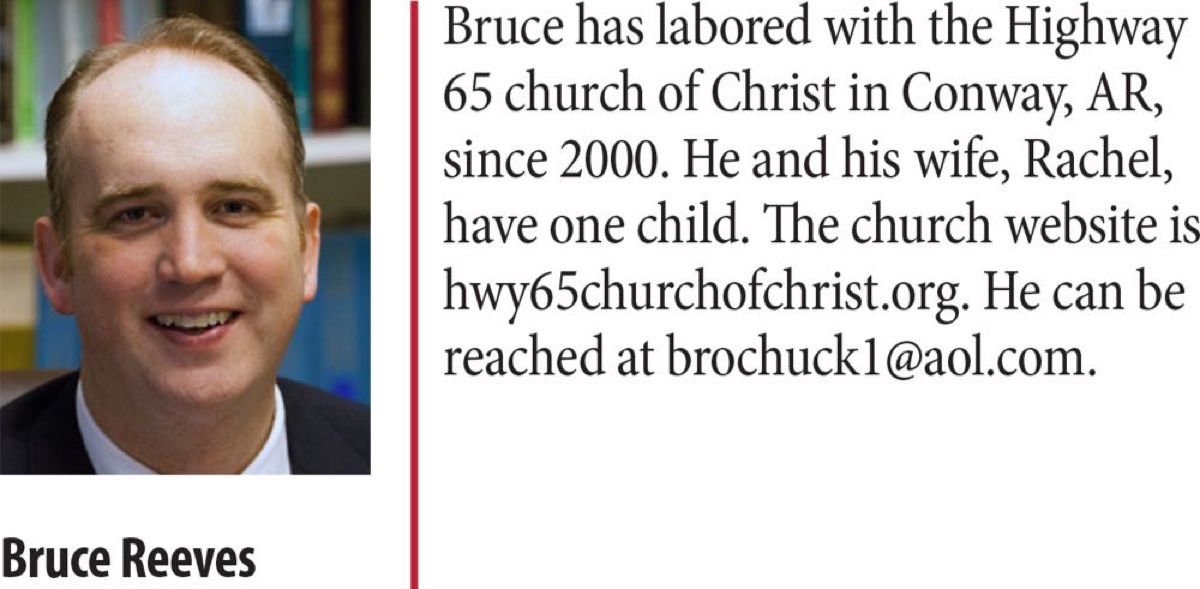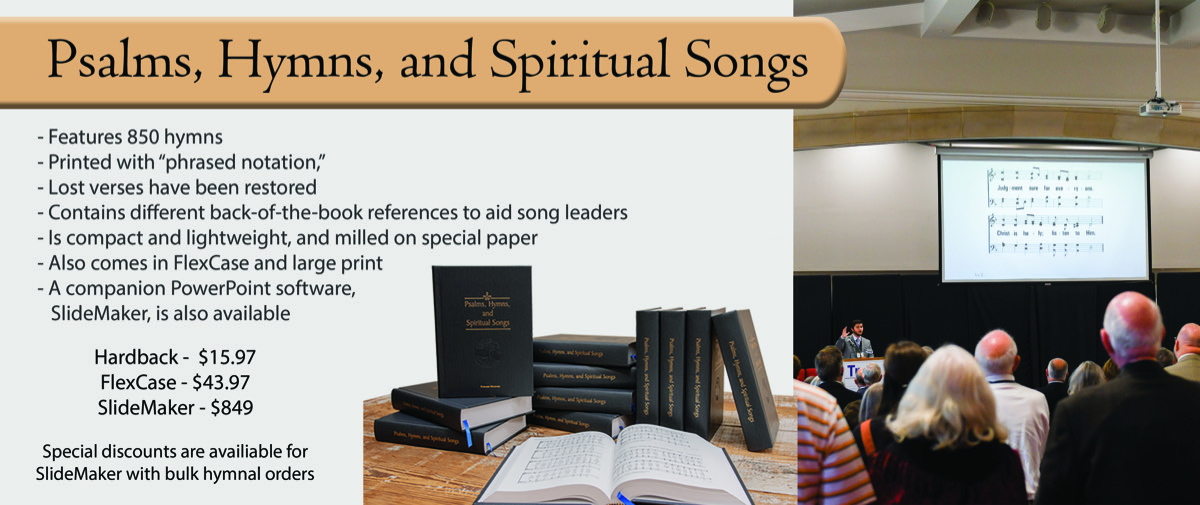By Bruce Reeves
Synopsis: Those who ridicule the Holy Spirit’s influence through the gospel and then argue for mystical experiences that leave one with bodily sensations have given in to the path of emotionalism, which is more akin to paganism than biblical faith.
When we consider the powerful preeminence of Christ in Colossians 1, His divine fullness in chapter 2, and His reign and authority in chapter 3, it is easy to overlook the importance of Colossians chapter 4. Yet this section of Colossians serves an essential role in the development of the theme of the epistle. We find that the privileges of Christ call us to participate in His mission. Paul moves his readers from the consideration of the riches and fullness of God’s mercy to the faithful proclamation of the word of God. The Lord’s grace is not merely a set of propositions, although it is grounded in truth, but it is living the new life of Christ in real time and in the real world.
The new life of Christ focuses on fellowship with God. Paul writes, “Devote yourselves to prayer, keeping alert in it with an attitude of thanksgiving” (Col. 4:2). This devotion connects us with the influence of the Spirit through the gospel. To “pray at all times in the Spirit” is to pray under the influence of the Spirit’s guidance in His revelation (Eph. 6:18; Jude 20). Those who mock and ridicule the Holy Spirit’s influence through the gospel of Christ and then argue for mystical experiences that cause bodily sensations have given in to the destructive path of emotionalism. This is seen in the chaos of the Charismatic movement which is more akin to paganism than biblical faith. Prayer is a powerful support of the faithful Christian in a world that is hostile to the gospel.
Epaphras is held up as one who was “laboring earnestly for you in his prayers. . .” because of his “deep concern” for his brethren (Col. 4:12-13). The ESV says he was “struggling” on their behalf in his prayers and the NIV renders the text as “he is always wrestling in prayer for you.” It is a tremendous blessing to know that faithful brethren are fervently praying for us! How do we ensure that we are devoting ourselves to godly prayers? The petitions of believers are to be guarded and protected by thanksgiving. The term “alert” indicates that thanksgiving helps guard our prayers from self-defeating and idolatrous selfishness (Jas. 4:1-3). If our prayer life has denigrated into a spiritual drive-thru window for fleshly desires, rather than the dependence and praise of faith, Paul offers a corrective—“thanksgiving” (Col. 4:2; cf. Phil. 4:4-6). We surrender to Jesus as Lord of our lives in thanksgiving (Col. 3:17). Thanksgiving not only guards our prayers, but it also leads us to spiritual alertness!
Our mission as God’s people is to proclaim the gospel of Christ. Paul wrote, “Praying at the same time for us. . . so that we may speak forth the mystery of Christ, for which I have been imprisoned; that I may make it clear in the way I ought to speak” (Col. 4:3-4). Interestingly, Colossians 4:2-3 offers a biblical echo of Colossians 1:24-29. Paul encourages brethren at Colossae to “fully carry out the preaching of the word. . .” and the “mystery which has been hidden from the past ages and generations” which has now been “manifested to His saints” (Col. 1:25-26). He goes on to encourage the growth of believers: “We proclaim Him, admonishing every man and teaching every man with all wisdom, so that we may present every man complete in Christ. For this purpose, I also labor, striving according to His power, which mightily works within me” (Col. 1:28-29).
The term “mystery” refers to God’s eternal purpose in the gospel that has been “revealed” and “manifested” to saints. This mystery was the secret and eternal plan of God for the salvation of the whole world (Col. 1:26-27; cf. Rom. 16:25-26; Eph. 3:2-11). Paul’s desire to speak as he ought is not merely a request for brethren to pray for his eloquence, but that he proclaims the fullness of the word of God, even though he was imprisoned (Col. 4:4). In other words, he was saying, “Pray for my dedication to the gospel and courage to proclaim Christ” (Eph. 6:20).
We are given some wonderful insights in this section regarding how we should share Christ with unbelievers:
Not only did the gospel unify Jewish and Gentile believers, but it also transformed the approach of all saints to those outside of Christ. Our understanding of God’s nature and grace shapes our endeavors to teach the gospel to the lost. As Christ invaded Paul’s own life with His grace, so God through Paul is expanding that Christ-invasion of the gospel throughout the Roman Empire, and into all the world. Our faith is not only heard by what we say, but it is seen in our walk with the Lord (Col. 1:9-10, 28; 2:3, 23; 3:16). Some have decided that the best approach to evangelism is to blur the lines of distinction between the New Testament church and denominational teachings. Yet, it is worthy of note that Paul uses the term “outsiders” to describe the lost (Col. 4:5; 1 Thess. 4:11-12). The driving force of evangelism is not seen in erasing biblical distinctions between believers and nonbelievers, but by seeing the need to call the lost to salvation (Mark 16:15). It is vital that we adorn the doctrine of Christ in our lives and in our speech (Matt. 5:13-16; Titus 2:6-10).
The verb translated as “make the most of every opportunity” means to “purchase up.” Thus, we are to buy up each valuable moment by maximizing every opportunity to speak and do good (Gal. 6:10).
We read, “Let your speech always be with grace, as though seasoned with salt, so that you will know how you should respond to each person” (Col. 4:6). Although truth can be taught by unsavory persons (Phil. 1:15-17), we must be thoughtful concerning how we teach the word of God (Eph. 4:15). Rather than engaging in hotheaded diatribes or reckless and unthoughtful expressions in discussions with nonbelievers, we should equip and prepare ourselves to offer a defense of Christ with meekness and fear (1 Pet. 3:15). Our speech is to be seasoned with a gracious, fruitful, wise, loving, truthful, and encouraging spirit.
We pray for each other because we believe in a God that can open doors for the gospel to be heard and fellow believers to be edified (Col. 4:3). The Lord opened a door of faith for the Gentiles (Acts 14:27), a “wide door for effective service” even when there were “adversaries” (1 Cor. 16:9; 2 Cor. 2:12), and the door for the advancement of the gospel even while Paul was imprisoned (Phil. 1:12-14; 2 Thess. 3:1).
The Lord’s providence is also seen in the value of the Scriptures. The apostle’s letters were to be read in all the churches with an understanding of his apostolic authority (Col. 4:16). The exchange of Pauline letters was a common practice among the brethren, and they were to be read by various congregations (1 Thess. 5:27). Apparently, the things he wrote to Colossae would benefit Laodicea as well. Paul says he taught the same things in all the churches (1 Cor. 4:17). The Lord has providentially insured that we have all that we need and can have full confidence in the Scriptures.
We read of several individuals who were encouragers of the apostle Paul. They are described as beloved brothers, faithful brothers, fellow prisoners, and fellow servants, etc. (Col. 4:7-18). The new life we have in Christ brings us into a spiritual family that is filled with diverse backgrounds, ethnicities, and cultural experiences. All believers enjoy fellowship with one Lord, through one faith, by one baptism, in one body, by one God, one Spirit, and with one hope (Eph. 4:4-6). Think about your relationships in the gospel? Who has been your Barnabas? Who has been your Paul? Who has been your Jonathan? In a world that is hostile against Christ, we need each other. We need to encourage each other in worship, teach one another in study, admonish each other in correction, and support one another in love (Heb. 10:24-25; 12:12-13).
This chapter must not be overlooked but embraced. The preeminence and fullness of Christ not only brings us salvation but calls us into His body with other believers as we participate in the gospel together and proclaim Jesus as Lord! I know of no better place to end than Paul’s last statement: “Grace be with you” (Col. 4:18).



